
The Mask
The Mask Bar and Restaurant is serving up large platter-style dishes from Eritrea and Ethiopia.
This spot is the perfect place for sharing a meal among friends, the huge portions can accommodate just about any dietary restriction.
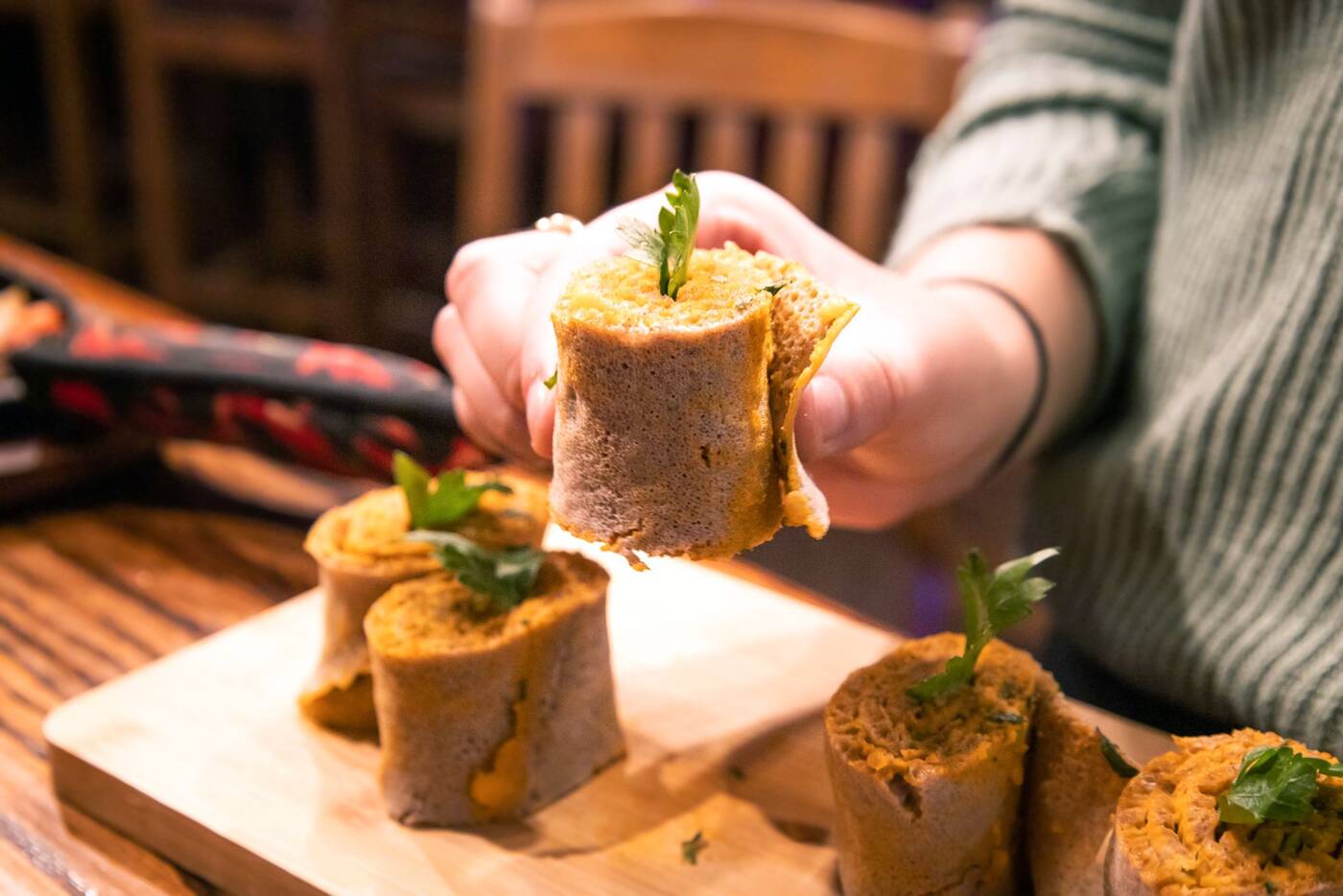 The Mask has several vegetarian and pescatarian options on their menu, in addition to, a meal lover's section.
The Mask has several vegetarian and pescatarian options on their menu, in addition to, a meal lover's section.
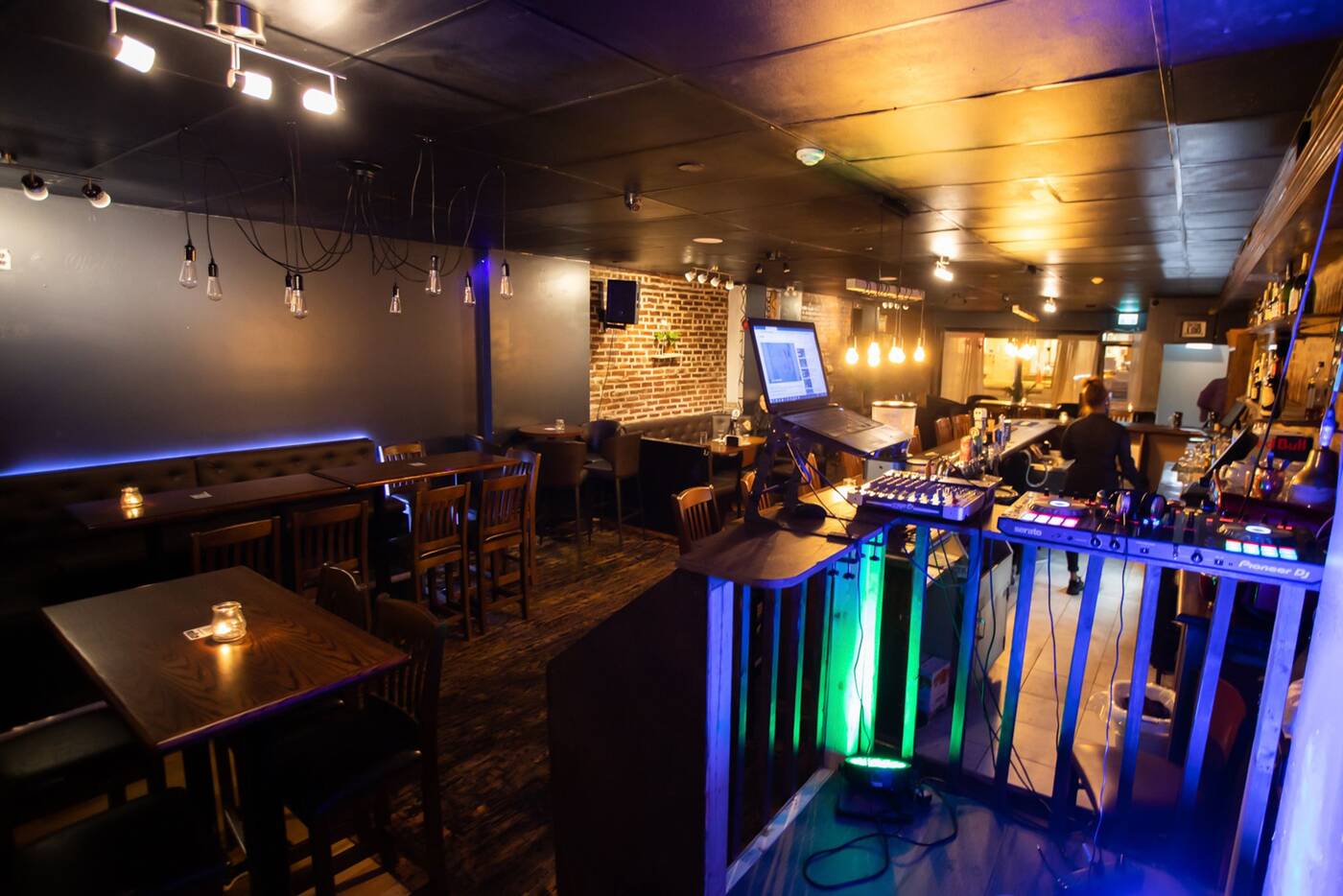 Come by on a Friday or Saturday night where they host DJ's who make the restaurant more upbeat over the weekends, playing sets of Afrobeat songs and 90's R&B music.
Come by on a Friday or Saturday night where they host DJ's who make the restaurant more upbeat over the weekends, playing sets of Afrobeat songs and 90's R&B music.
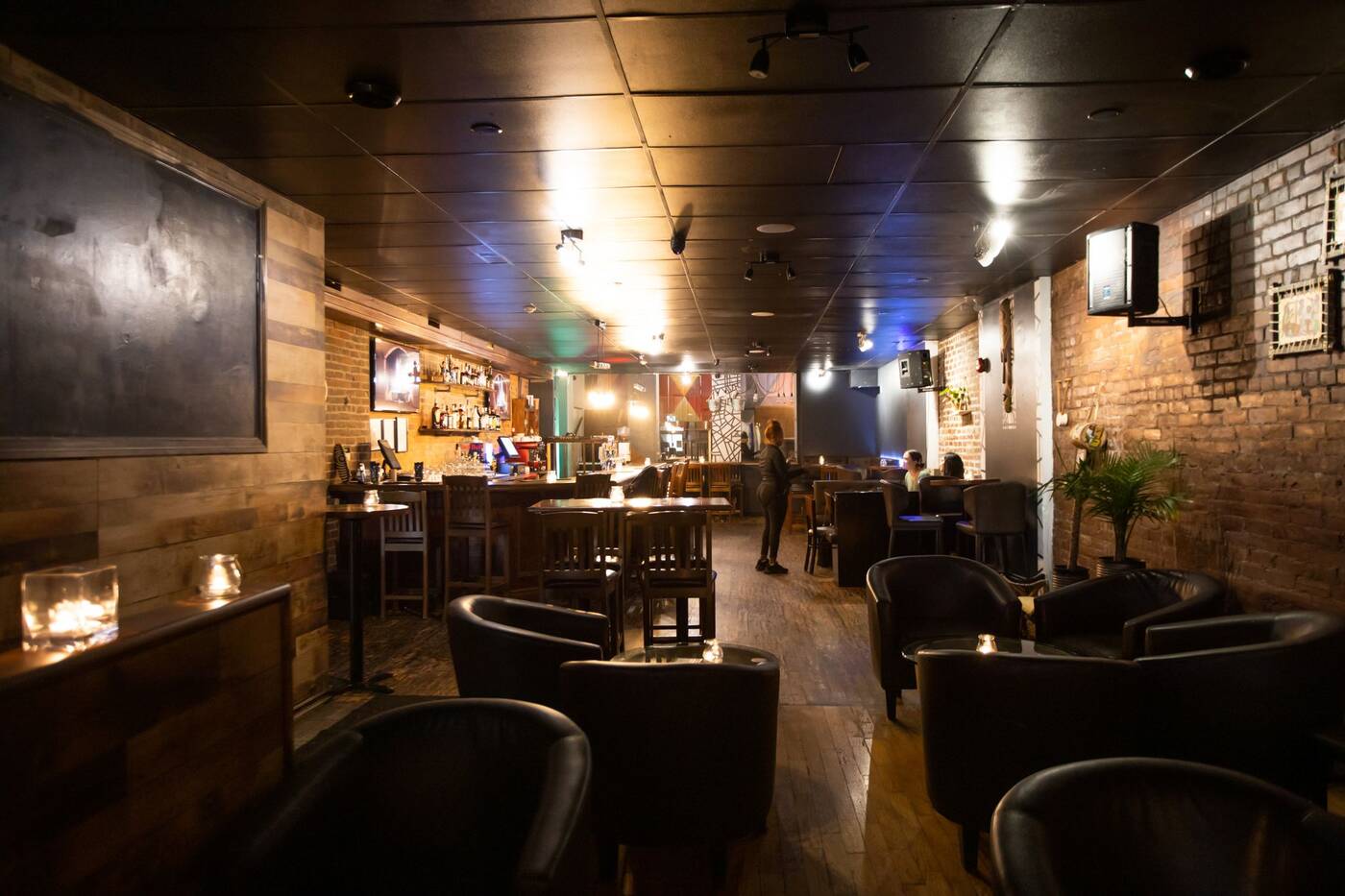 This isn't a club environment though, or even a hype bar, Owner Sami Tadese worked to make The Mask into a lounge, where people can come together with good food in a relaxing space.
This isn't a club environment though, or even a hype bar, Owner Sami Tadese worked to make The Mask into a lounge, where people can come together with good food in a relaxing space.
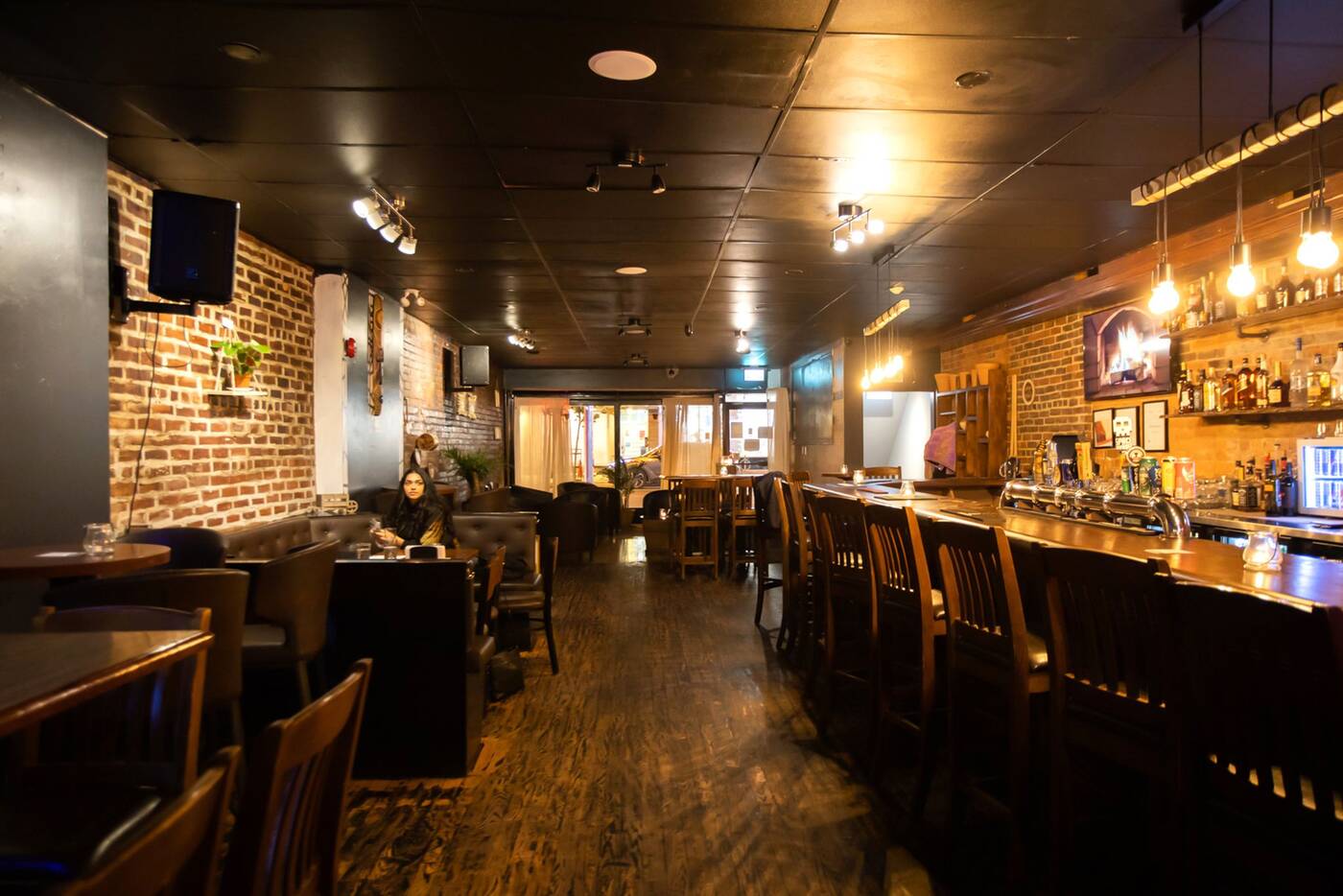 There's a warm-hue to the overall atmosphere, the fireplace channel plays on two televisions behind the bar, surrounded by family-style booths and tables.
There's a warm-hue to the overall atmosphere, the fireplace channel plays on two televisions behind the bar, surrounded by family-style booths and tables.
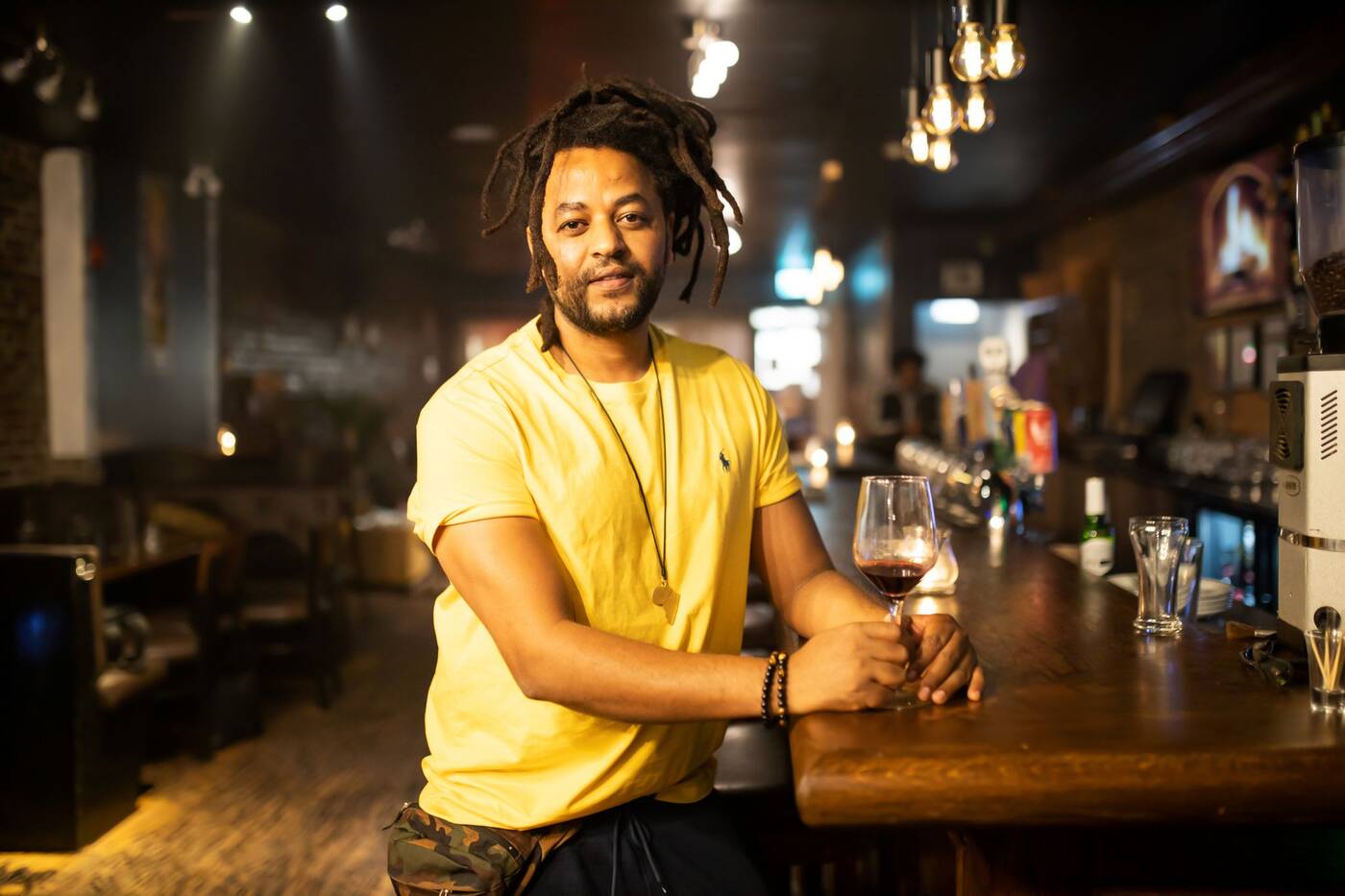 Tadese was once a soccer player for his home country of Eritrea, but then moved into working in the food industry for almost 10 years.
Tadese was once a soccer player for his home country of Eritrea, but then moved into working in the food industry for almost 10 years.
In 2019, he owned a bar in Uganda, but soon after that immigrated to Canada, bringing his Auntie, who helps cook the majority of the food at The Mask.
Tadese calls her "a rockstar", saying he wanted a chef who truly understood the flavours and methods of cooking from back home.
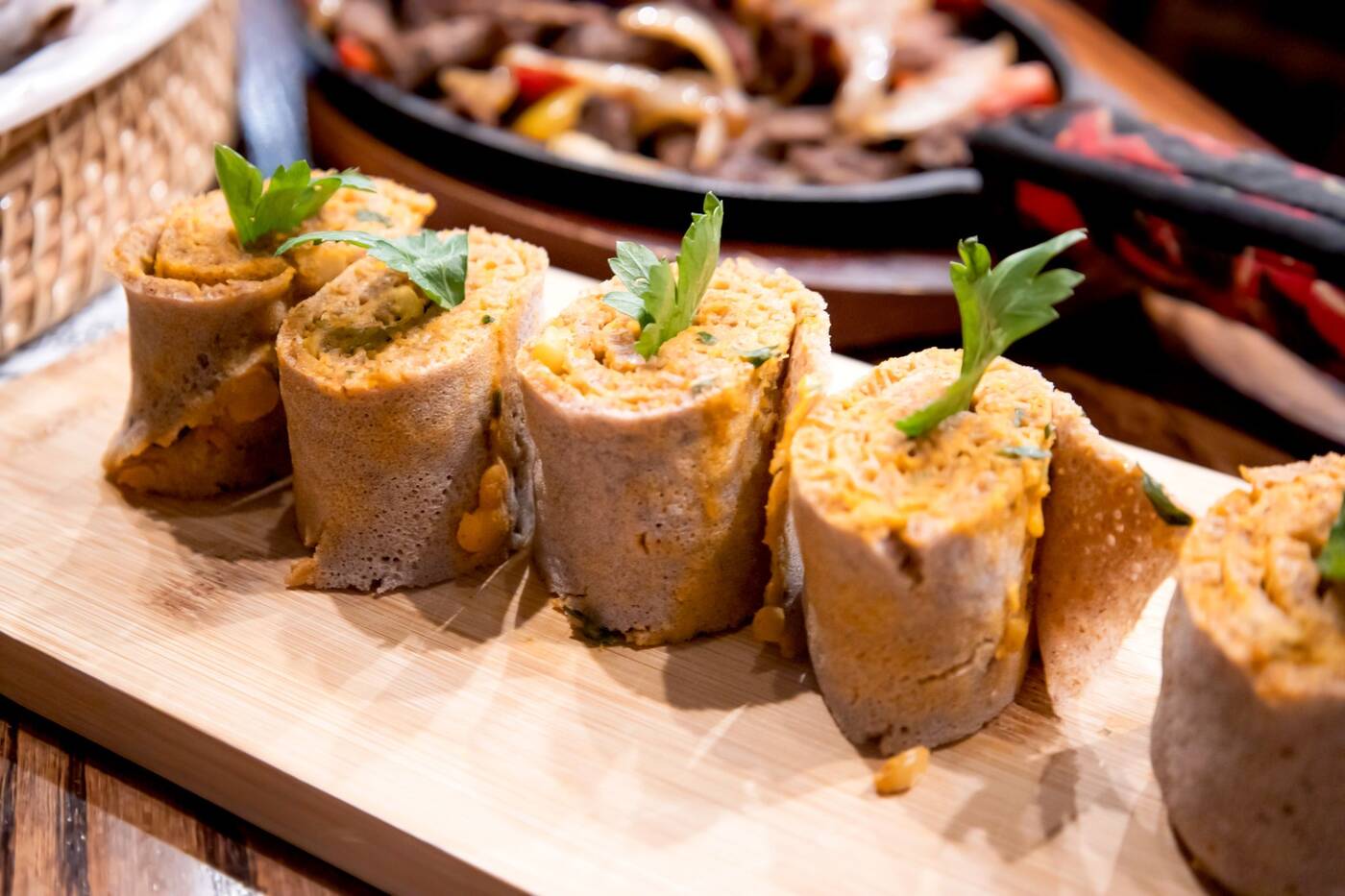 Shiro ($12.00) is a satisfying appetizer that won't get you too full before the main course. Roasted chickpeas are grounded, then simmered with onion, ginger, garlic, and chilli. The mixture is wrapped in Injera, an Ethiopian flatbread, and topped with cilantro.
Shiro ($12.00) is a satisfying appetizer that won't get you too full before the main course. Roasted chickpeas are grounded, then simmered with onion, ginger, garlic, and chilli. The mixture is wrapped in Injera, an Ethiopian flatbread, and topped with cilantro.
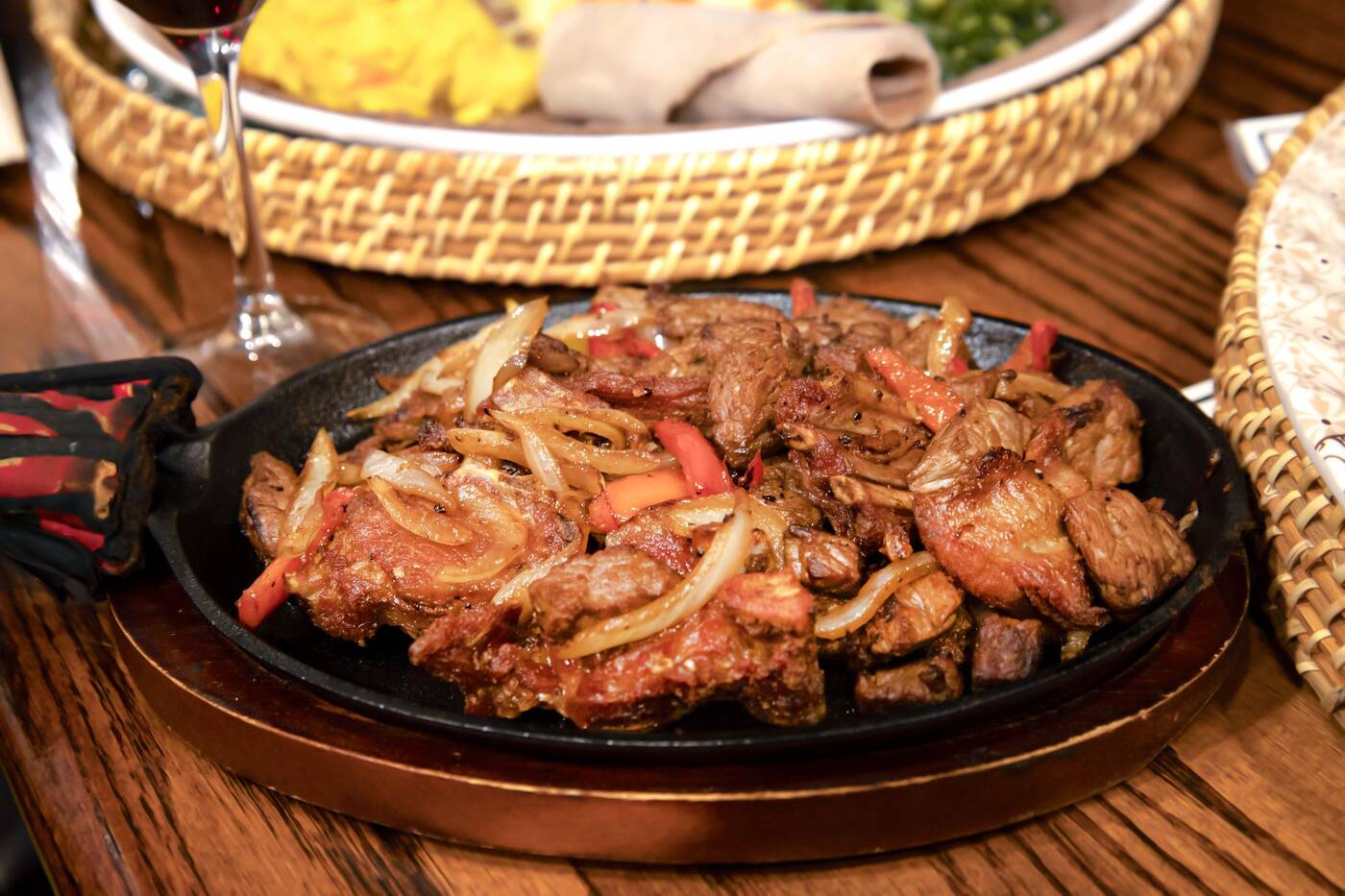 Chacha Tibs ($18.00) is part of the meat lovers dishes at The Mask. Boned lamb gets sauteed with onions, bell peppers, tomatoes and spinach, creating a lovely rich flavour to the meat. The dish arrives at the table on a flaming skillet, still sizzling from the kitchen.
Chacha Tibs ($18.00) is part of the meat lovers dishes at The Mask. Boned lamb gets sauteed with onions, bell peppers, tomatoes and spinach, creating a lovely rich flavour to the meat. The dish arrives at the table on a flaming skillet, still sizzling from the kitchen.
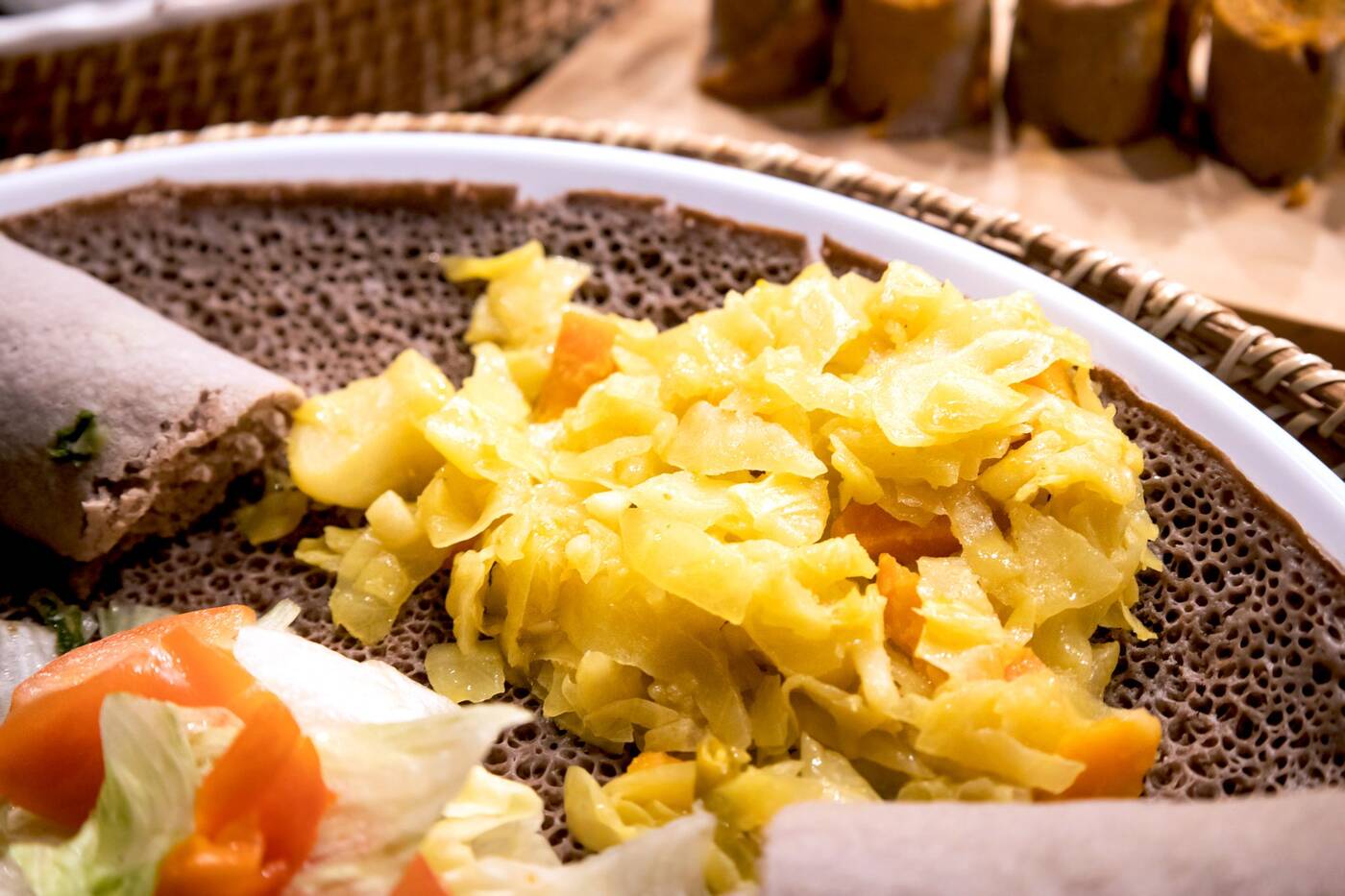
Alicha ($12.00) has fried cabbage and sliced carrot, both are stewed in the chef's special sauce, along with Eritrean tumeric sauce. Flavours of ginger and onion are strong in this dish, but it complements well with the cabbage.
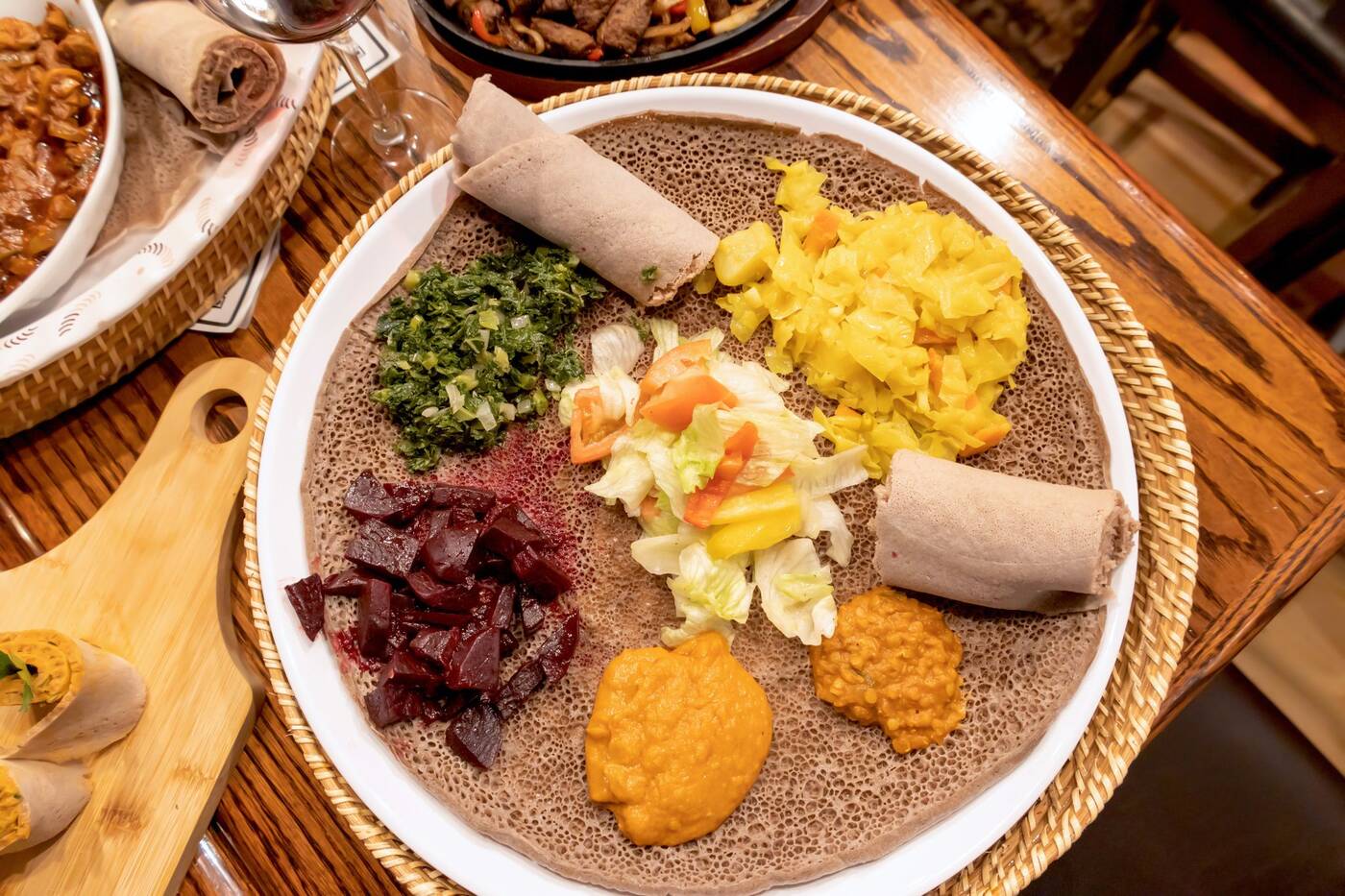 Alicha is served on a bed of Injera, along with several other vegetable-based sides. It's tradition and respectful to eat all the platters with your right hand, using the extra rolls of Injera to scoop up and eat each one.
Alicha is served on a bed of Injera, along with several other vegetable-based sides. It's tradition and respectful to eat all the platters with your right hand, using the extra rolls of Injera to scoop up and eat each one.
Sides include: Two variations of mashed chickpeas (spicy and non-spicy), chopped beats, kale, and a small salad in the centre topped with tomato.
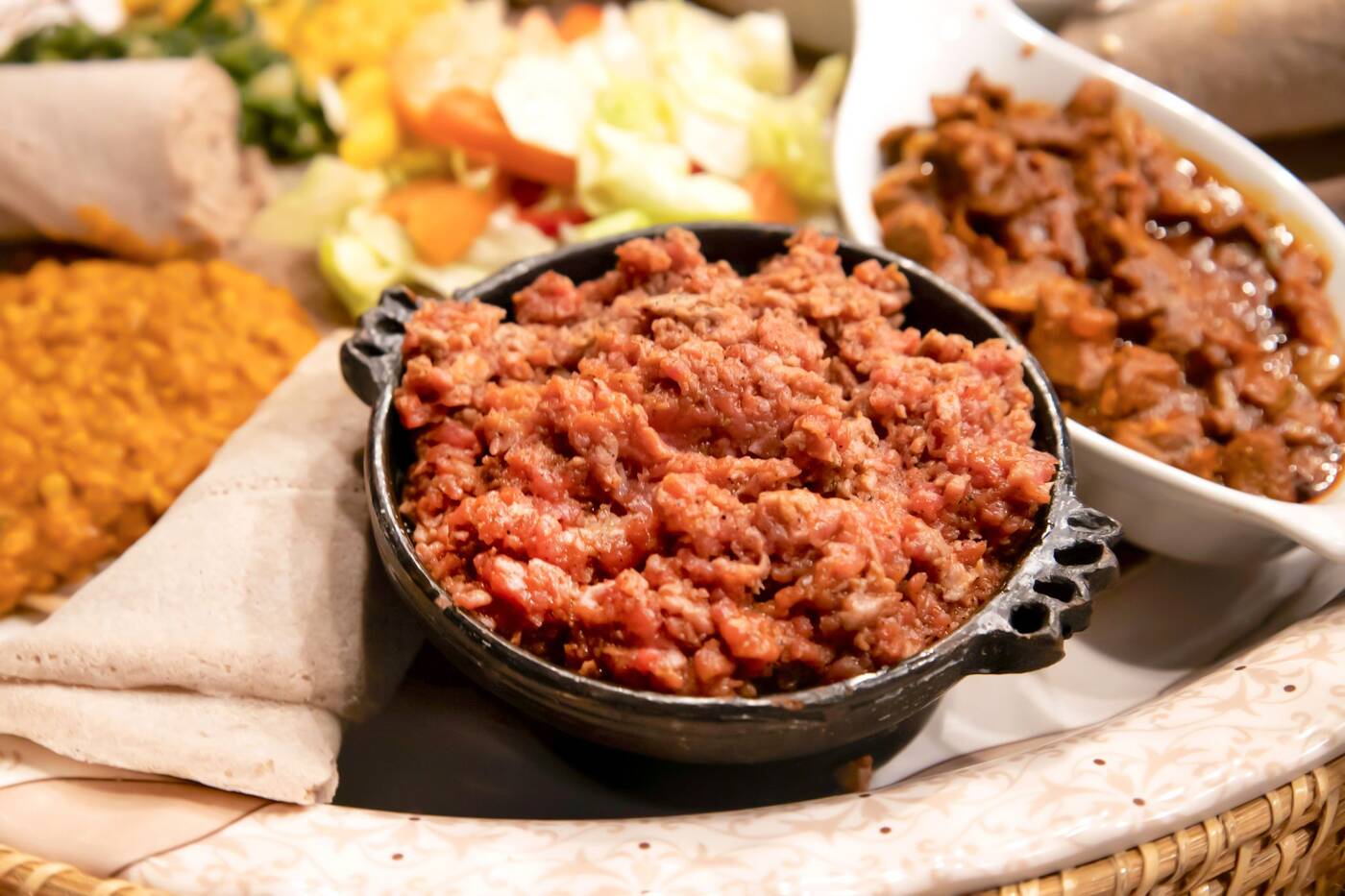 Kifto ($18.00) is steak tartare that gets cooked in a traditional spiced butter, a dash of hot pepper, and chilli sauce is added for flavour. If you're a spice lover, fear not, this dish was made for you, although those who are more sensitive, may want to go for something lighter.
Kifto ($18.00) is steak tartare that gets cooked in a traditional spiced butter, a dash of hot pepper, and chilli sauce is added for flavour. If you're a spice lover, fear not, this dish was made for you, although those who are more sensitive, may want to go for something lighter.
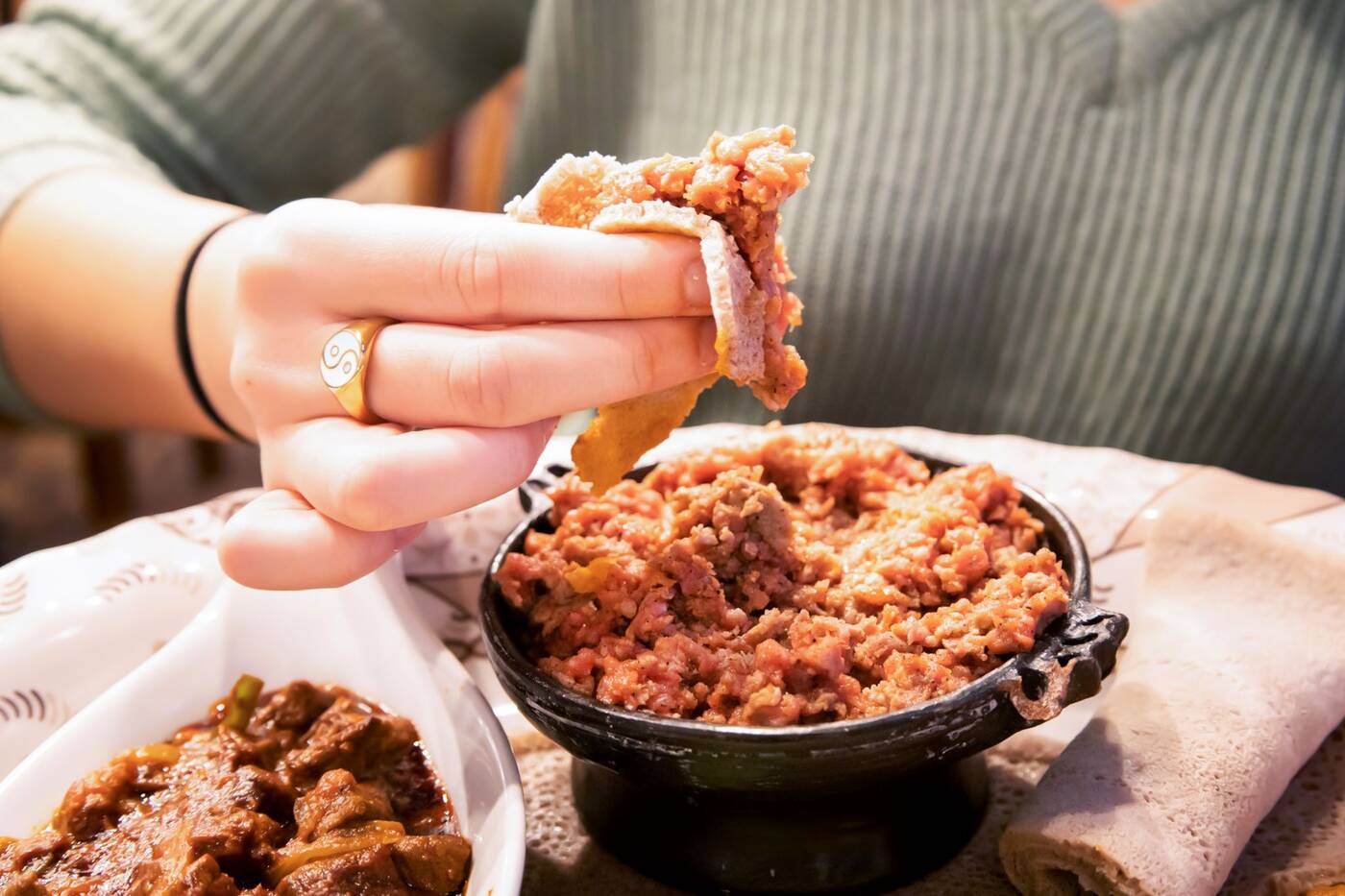 Kifto is served as a side to any of the platter dishes at The Mask, it's meant to be scooped up using Injera flatbread.
Kifto is served as a side to any of the platter dishes at The Mask, it's meant to be scooped up using Injera flatbread.
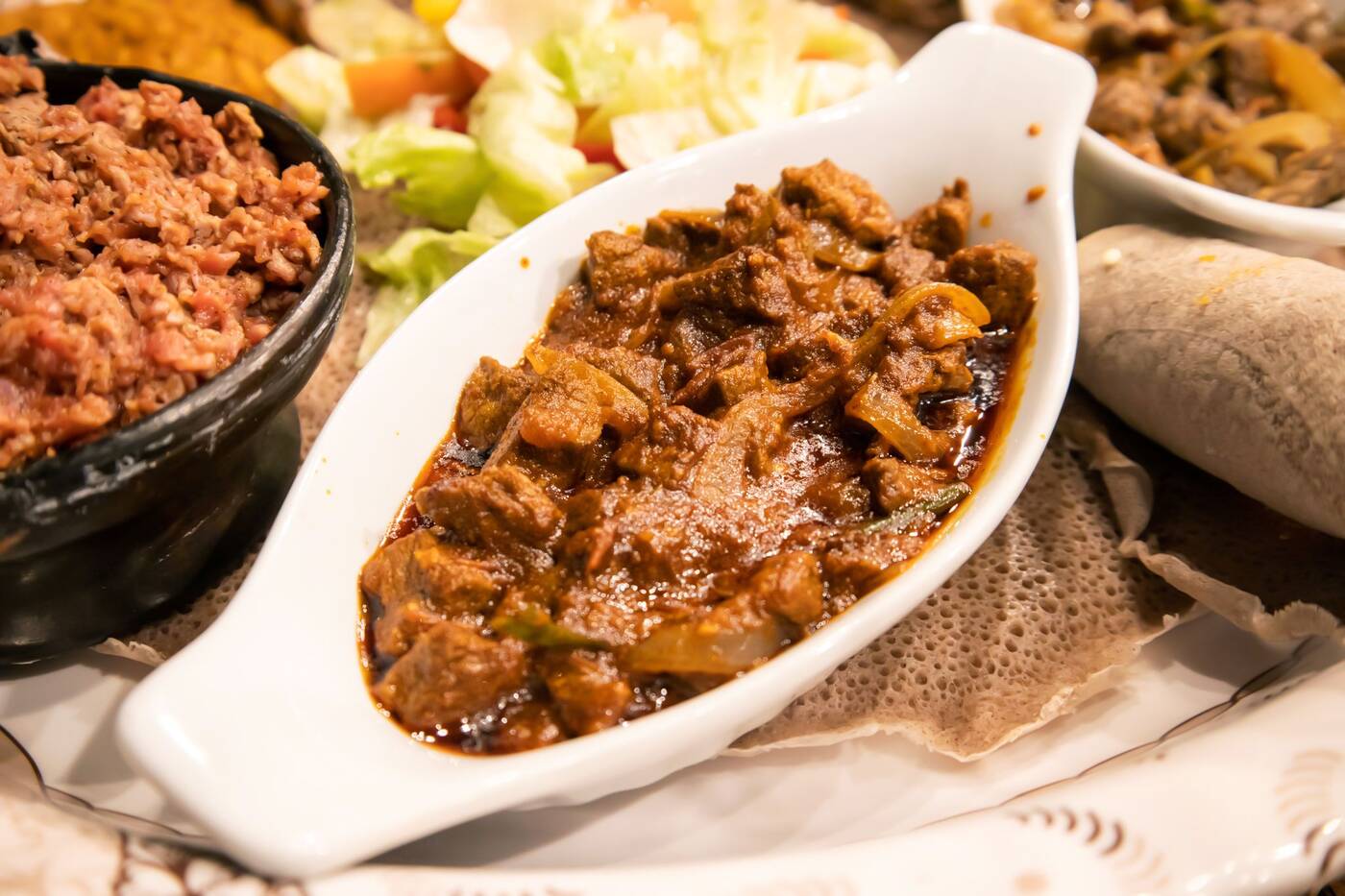 The Meat and Veggie Platter ($18.00) comes with lamb and goat meat (spicy and non-spicy), you can tell the difference by the colour of each one, the spicy lamb is more red, due to it being cooked in chilli sauce.
The Meat and Veggie Platter ($18.00) comes with lamb and goat meat (spicy and non-spicy), you can tell the difference by the colour of each one, the spicy lamb is more red, due to it being cooked in chilli sauce.
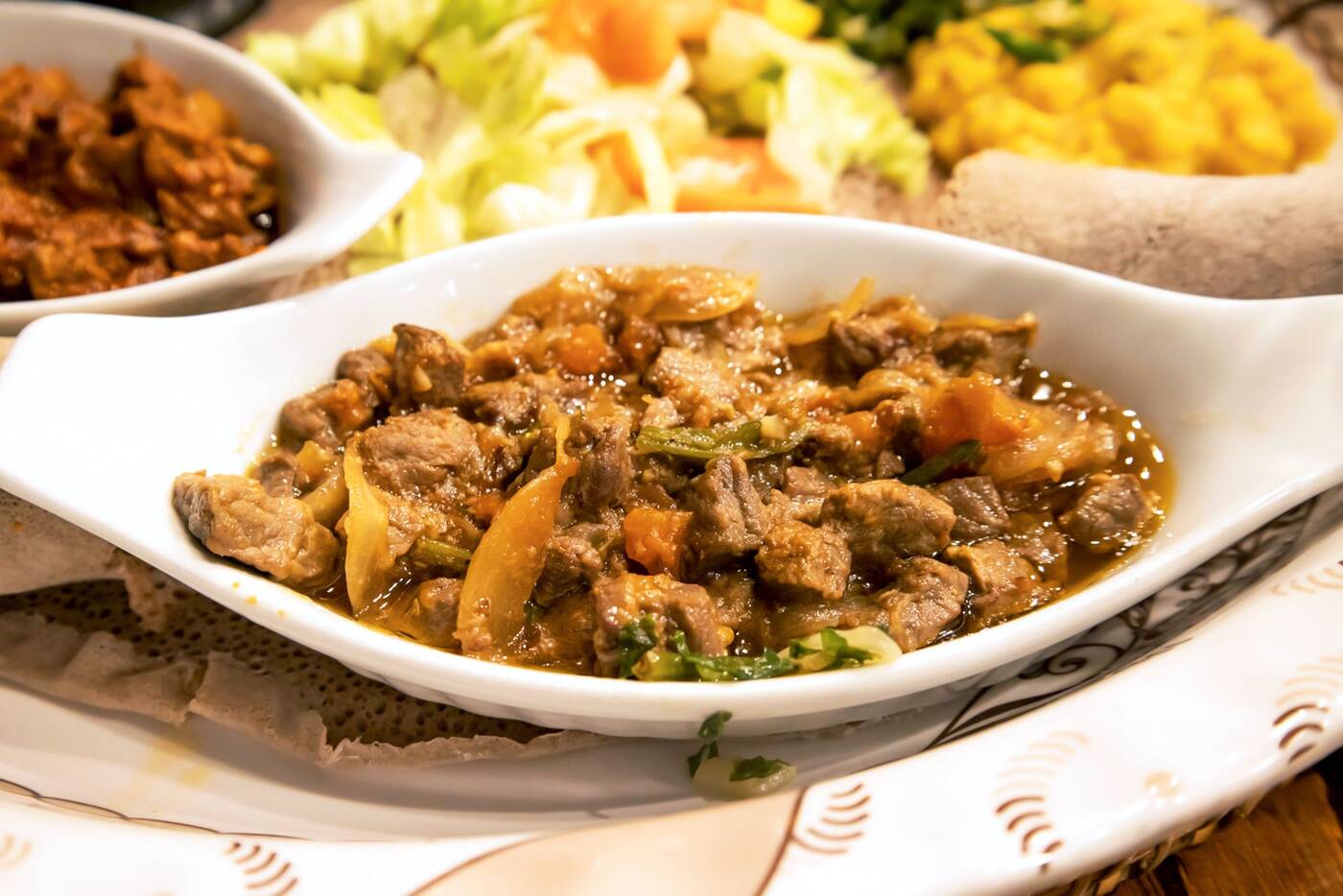 The goat is non-spicy, but both meats are stewed with bits of onion, garlic, kale, and tomato, giving it that extra punch of flavour.
The goat is non-spicy, but both meats are stewed with bits of onion, garlic, kale, and tomato, giving it that extra punch of flavour.
The lamb and goat are served in separate dishes but both come in on a platter of Injera, served with sides of kale, and two types of ground chickpeas (spicy and non-spicy).
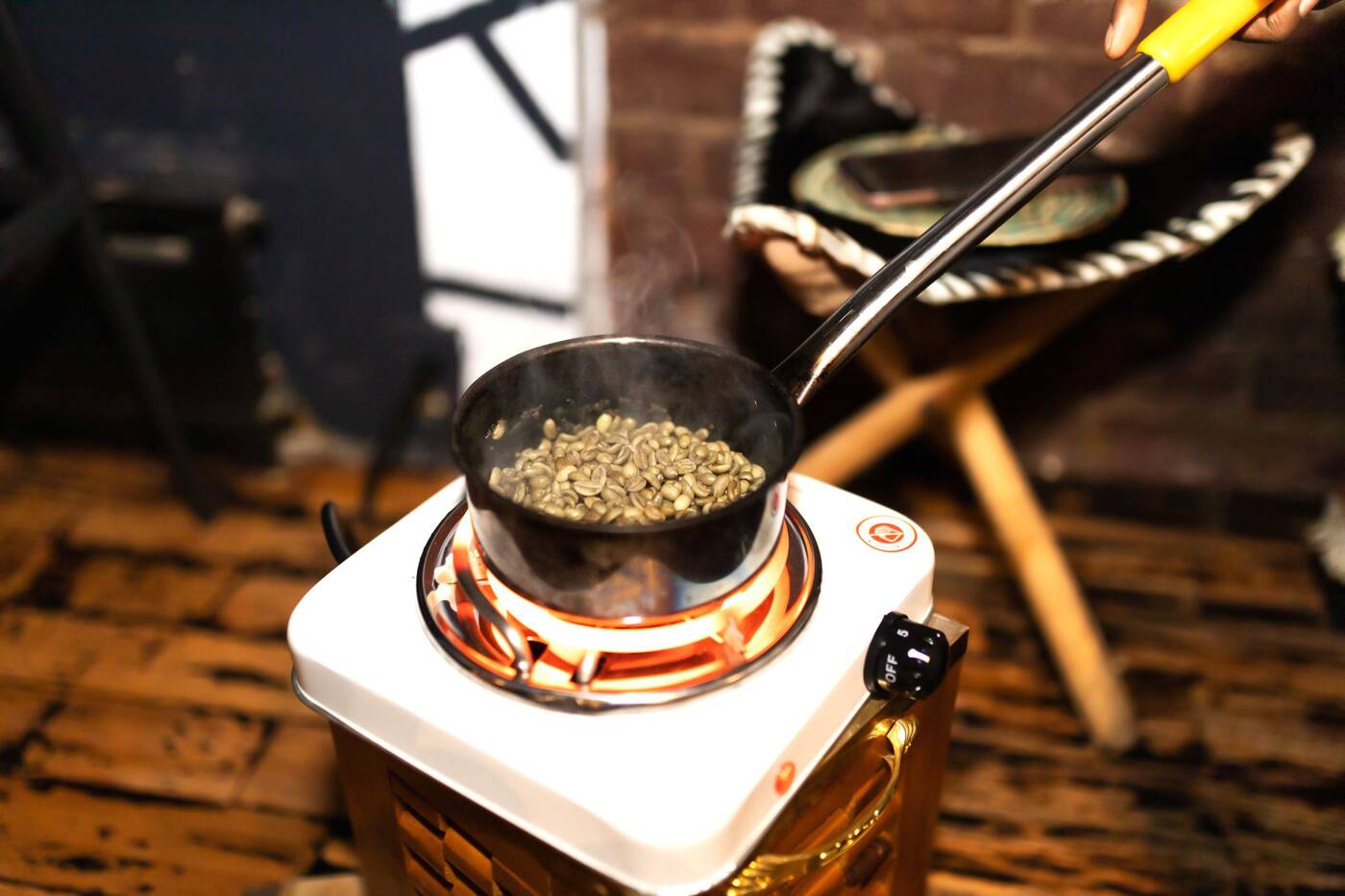 Although only served till noon, The Mask also has breakfast offerings. Every Sunday morning, they host traditional coffee ceremonies, where families come together to sip and pause for a moment while enjoying each other's company.
Although only served till noon, The Mask also has breakfast offerings. Every Sunday morning, they host traditional coffee ceremonies, where families come together to sip and pause for a moment while enjoying each other's company.
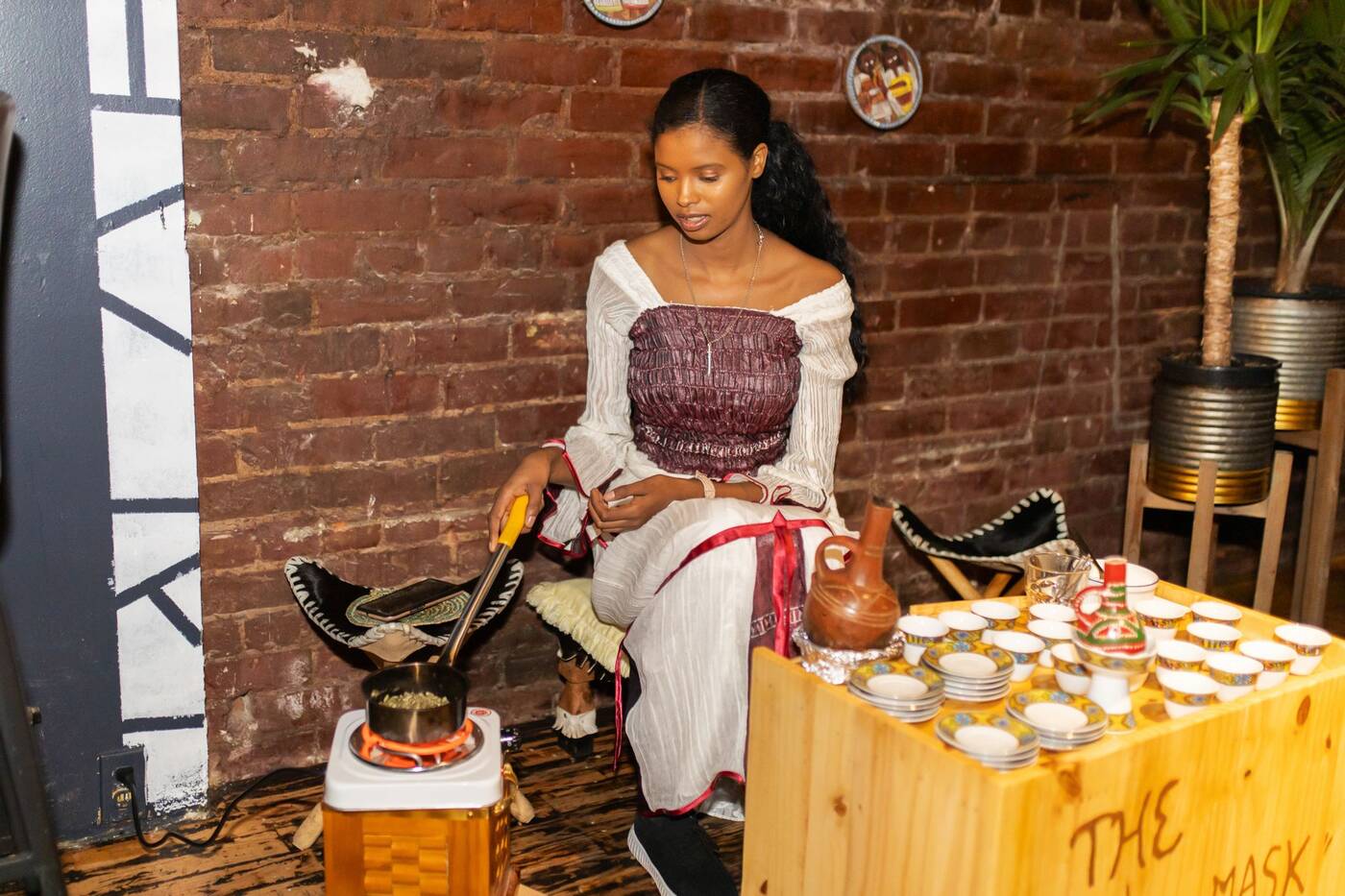 The ritual, called Jebena Buna, starts off with a woman who roasts the green coffee beans, until they're basically black. The beans are then grounded using a mortar and pestle, and boiled with hot water.
The ritual, called Jebena Buna, starts off with a woman who roasts the green coffee beans, until they're basically black. The beans are then grounded using a mortar and pestle, and boiled with hot water.
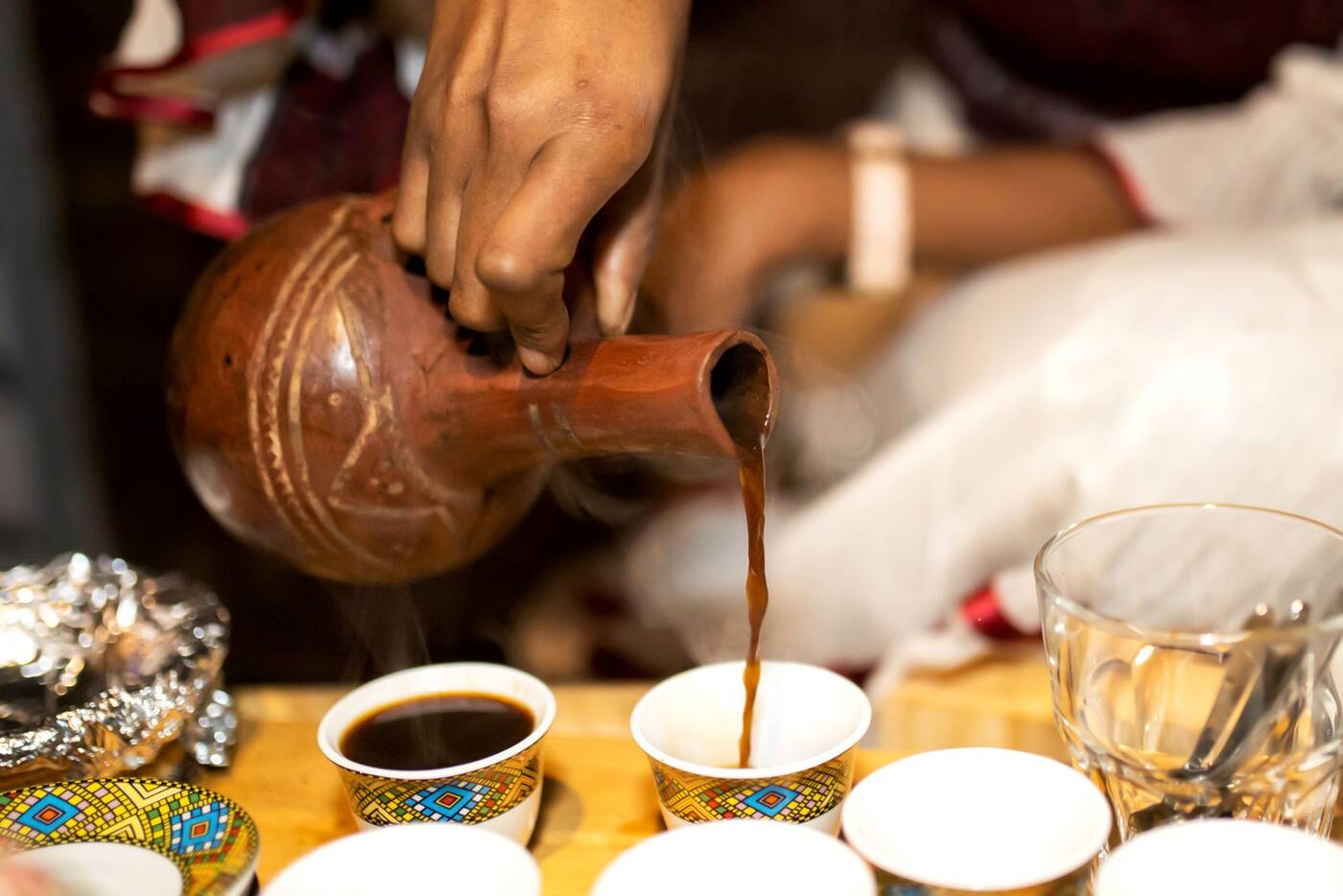 It's then filtered through a wooden jug, and served in beautifully adorned tiny cups and plates. The taste of the coffee is bold, but the ritual of it all, brings you to the present moment, and is meant to be enjoyed after a big meal.
It's then filtered through a wooden jug, and served in beautifully adorned tiny cups and plates. The taste of the coffee is bold, but the ritual of it all, brings you to the present moment, and is meant to be enjoyed after a big meal.
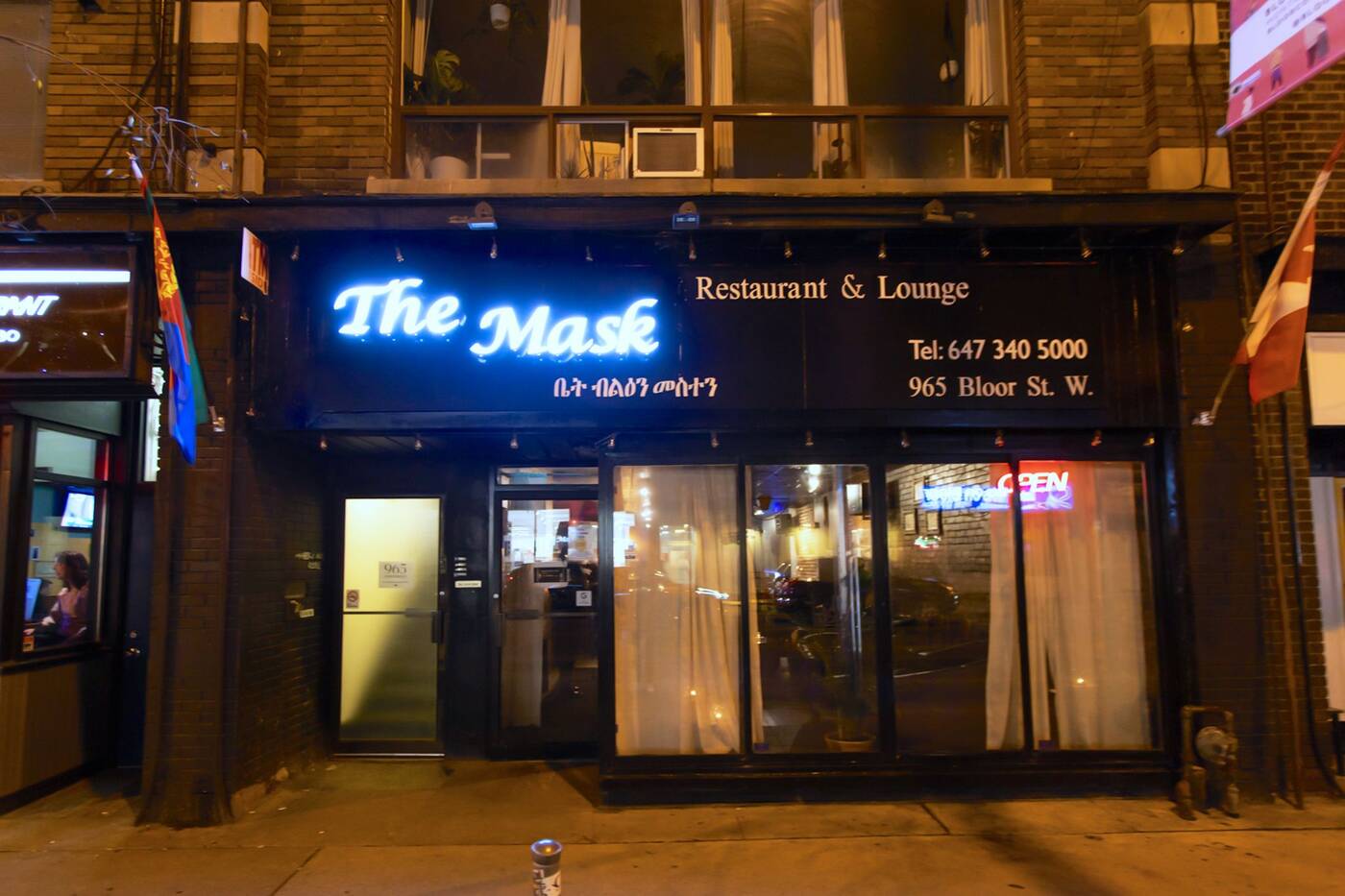 The Mask sits right near Bloor and Ossington, among a few other Ethiopian restaurants, like African Palace. Even though they're technically competition, The Mask's owner says they all help each other out, being that they share a similar culture.
The Mask sits right near Bloor and Ossington, among a few other Ethiopian restaurants, like African Palace. Even though they're technically competition, The Mask's owner says they all help each other out, being that they share a similar culture.
Fareen Karim








